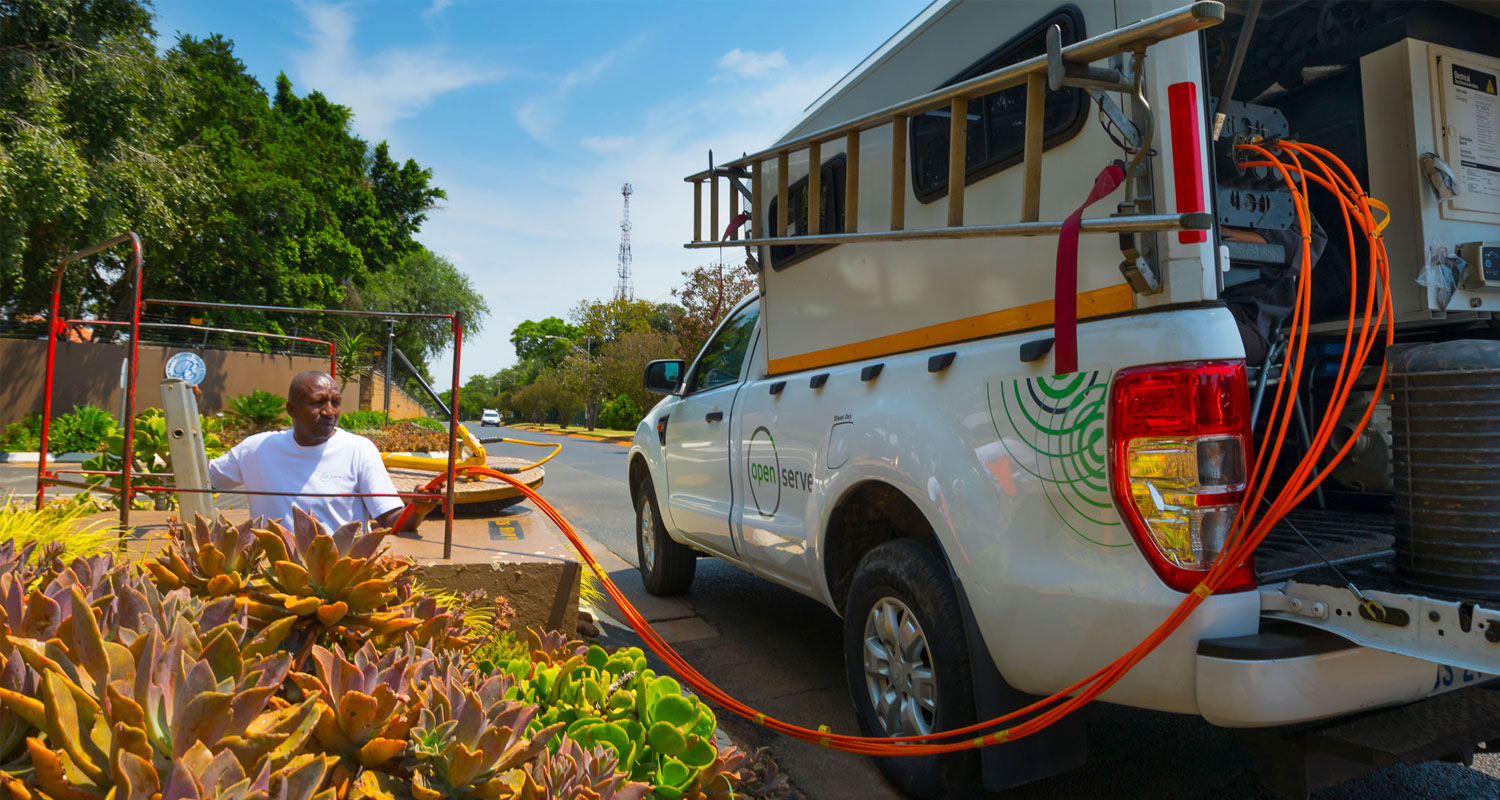 Telkom is in a tough place.
Telkom is in a tough place.
The telecommunications operator, recently the subject of a now-aborted takeover attempt by rival MTN Group, has reported a poor set of interim results for the six months to end-September 2022.
It has also revised its guidance to the market lower, with medium-term revenue and Ebitda – earnings before interest, tax, depreciation and amortisation – now expected to grow at low- to mid-single-digit percentages.
Headline earnings per share slumped 51.9%, while Ebitda – a measure of operational profitability – fell by 17.3% to R4.9-billion. Mobile revenue growth largely stalled, despite an increase in the mobile customer base of 10.9% (to 18 million).
Worryingly, Telkom generated negative free cash flow of R1.9-billion, 125% lower than the same period a year ago. Cash generated from operations decreased by R1.7-billion mainly due to a R1-billion decline in profit before tax and an R860-million deterioration in cash collections.
“The deterioration in cash was driven by the increase in trade receivables and contract debtors due to higher post-paid mobile handset sales. The collections derived from mobile handset sales are deferred over a 24- or 36-month contract, while the cost of sale is recorded immediately. This was partially offset by a 16.1% decrease in cash paid for capex.”
Telkom said its latest reporting period was characterised by “strained economic conditions placing consumers under pressure and an intensely competitive landscape”. Group performance “suffered under a sluggish economy, increasing electricity and fuel prices, rising interest rates cycle, and high unemployment, which constrained and impacted levels of consumer spending”.
Migration from legacy
Telkom also blamed its migration strategy from legacy to newer technologies, which impacted revenue and profit.
Group revenue declined “marginally” (-0.7%), driven by a decrease in fixed, mobile and IT service revenue due to “strained economic conditions and the decline in the legacy fixed business as customers migrated to new technologies such as fibre and LTE”.
This was, however, offset by an increase in mobile handset and IT hardware and software sales. “These sales are at lower margins and in line with the mobile strategy to drive post-paid annuity revenue.”
Ebitda margin contracted by 4.7 percentage points to 23.4%. “This was attributable to a 31.4% increase in our cost of handsets, equipment, software and directories, following higher mobile handset sales of 19.7% and the increase of 73.1% in IT hardware and software revenue.”
Service fees increased 21% driven by a significant increase in diesel expenses thanks to increased load shedding as well as higher advisory fees incurred, mainly attributable to mergers and acquisition-related transactions and key strategic projects.
 At Openserve, the wholesale business, revenue fell by 4.3% despite a 10.8% improvement in revenue from next-generation technologies. More than 65% of revenue is now derived from next-generation products and services. However, a “pricing and margin gap remains between the new business and legacy businesses. The accelerated decline during the period in legacy fixed business limited overall performance.”
At Openserve, the wholesale business, revenue fell by 4.3% despite a 10.8% improvement in revenue from next-generation technologies. More than 65% of revenue is now derived from next-generation products and services. However, a “pricing and margin gap remains between the new business and legacy businesses. The accelerated decline during the period in legacy fixed business limited overall performance.”
Openserve has done well in the home fibre broadband market, increasing homes passed by 35.8% year on year and homes connected with fibre by 33.7%. The homes connected ratio is now 46.2%.
In mobile, total revenue rose by just 0.5%, with the product mix evolving towards post-paid contracts. Prepaid growth slowed as share of wallet reduced. Still, Telkom grew its prepaid subscriber base by 10.7% to 15.2 million. The post-paid base increased by 11.7% to 2.9 million, while the average revenue per user in this segment reduced to R206.
Read: Sello Moloko resigns as Telkom chairman
Swiftnet, Telkom’s masts and towers business, had a poor six months, with revenue declining 2.1% to R660-million. Profit was also impacted, in part by investments in infrastructure to support other operators’ network deployments.
Telkom’s board has given an “in-principle approval to affirm and realise the value of its investment in Swiftnet partially or in full”. Management is “exploring various options of realising the value of the mast and towers business and will update the market in due course”. Telkom has previously considered listing Swiftnet on the JSE.
Read: Why MTN and Telkom could soon be back at the deal table
BCX was a rare bit of good news in Telkom’s latest numbers, reporting good traction in its IT business of hardware and software solutions, where revenue growth reached 13.7%. Big companies have again started investing IT following a “muted two-and-a-half-year period since the beginning of the pandemic”. Overall revenue at BCX grew marginally (0.8%), mainly boosted by the IT segment, as the converged communications business remained under pressure. – © 2022 NewsCentral Media




